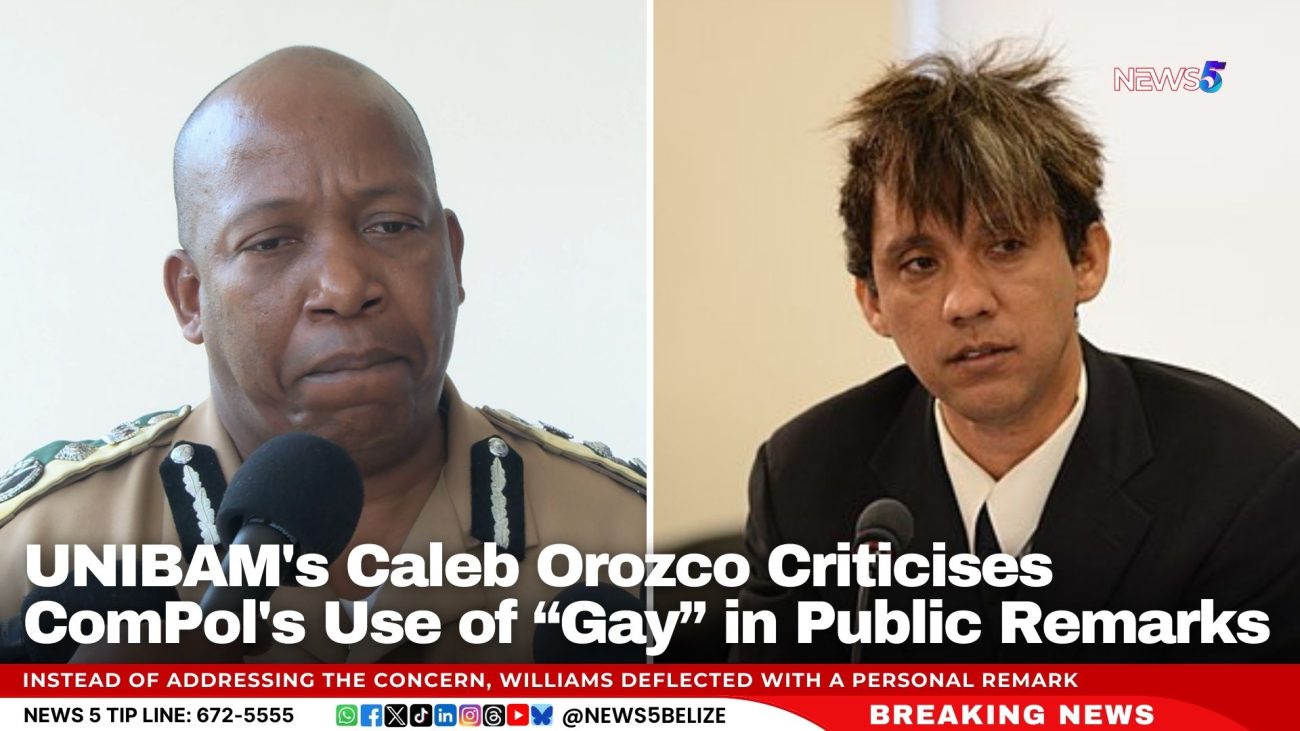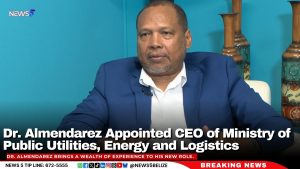UNIBAM’s Caleb Orozco Criticises ComPol’s Use of “Gay” in Public Remarks
Caleb Orozco, Executive Director of the United Belize Advocacy Movement (UNIBAM), has taken aim at Police Commissioner Chester Williams for comments made to the press earlier this week.
ComPol Williams was asked about his handling of the case involving police officer Devon Makin, who pistol-whipped a man in San Pedro in July. Makin, who was captured on video striking an unarmed and restrained man, remains on the force without any apparent disciplinary action. When the media pressed the commissioner on the matter, questioning why the officer—who is also Williams’ godson—had not been held accountable, he argued that other officers had committed similar acts without facing consequences. “There are several persons who have committed acts that could have been held accountable and were never held to account. Why do you keep dwelling on one issue?” he replied.
Instead of addressing the concern, Williams deflected with a personal remark, saying, “You have such an affinity for Mr. Makin? I can tell you he’s not gay. Stop it.”
The response has sparked further debate, with critics arguing that it sidesteps the real issue of police accountability and instead attempts to trivialise concerns through inappropriate remarks.
Orozco addressed the ComPol’s statement via a social media post on Thursday. While expressing respect for the commissioner, Orozco described the comments as troubling, particularly in the context in which the word “gay” was used. He noted that such language has historically been employed to delegitimise complaints and, more broadly, to invalidate the existence of LGBTQ+ individuals.
“I grew up hearing phrases like ‘stop acting gay.’ The use of the word in this context was used to delegitimise a complaint, just like it was used in the past to delegitimise my existence,” he added.
“To centre the word ‘gay’ in a public space, without acknowledging the optics of power dynamics from a uniformed state agent, is irresponsible. It sets a precedent for fairness and dignity in law enforcement.”
“To centre the word gay in a public space while not acknowledging the optics of power positioning from a person in uniform working as an agent of the state is also irresponsible because he sets that standard under which fairness and the dignity of the person are to prevail.”
Orozco also expressed surprise that the commissioner, despite the internal policies in place within law enforcement, appeared to overlook the importance of moral leadership. He further criticised what he described as the “weaponization” of the word “gay” in the same breath as a complaint, arguing that such rhetoric contributes to a system that treats LGBTQ+ Belizeans as second-class citizens.
“It’s not about the officer or the gentleman complaining,” Orozco added. “It’s about upholding a tradition in our governance that symbols of the state have been happy to treat LGBT Belizeans as second-class citizens, happy to be negligent in our legal needs for protection while claiming to uphold our human rights. The use of the word gay commissioner is gaslighting at its worst. The struggle continues!”







Facebook Comments